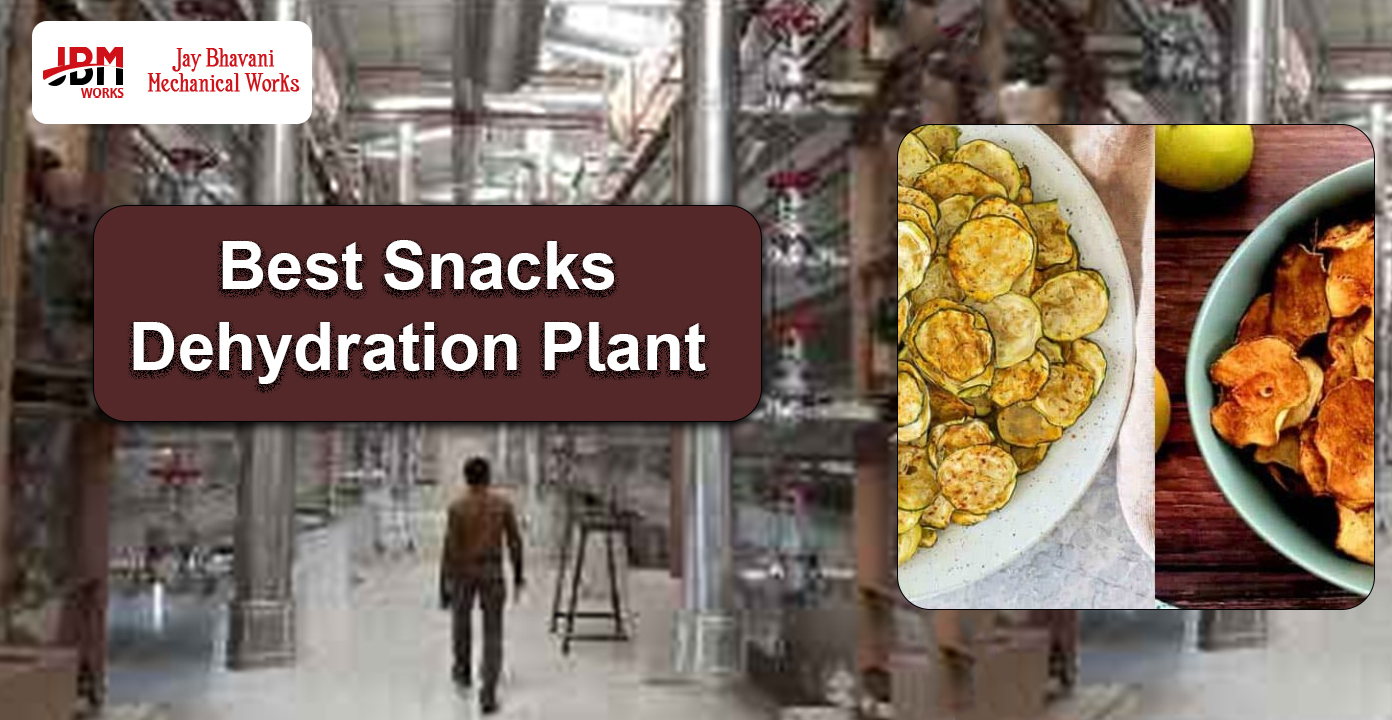
The demand for healthy and long-lasting snacks has driven the rise of dehydration technology in the Indian food processing industry. A snacks dehydration plant plays a critical role in removing moisture from various snack items such as chips, dried fruits, and vegetables while preserving taste and nutrients. For food manufacturers, a dehydration plant not only increases product shelf life but also opens up possibilities for export and large-scale distribution. This article provides an in-depth look at the latest prices, features, top manufacturers, and advantages of snacks dehydration plants in India. A snacks dehydration plant is a specialized system designed to remove moisture from food items using various heating and airflow technologies. This process inhibits microbial activity, thereby extending the shelf life of products without the need for chemical preservatives. These systems are suitable for processing snacks such as: Popular dehydration methods include hot air drying, vacuum drying, microwave drying, freeze drying, and solar drying. The choice of method depends on the product type, desired output quality, and energy efficiency requirements. The efficiency of a dehydration plant depends on its build quality and integrated components. Common components include: Prices of dehydration plants vary depending on the capacity, technology used, materials, and brand. Here is an estimated price range: Price influencers include material grade (SS304 or MS), automation level, type of drying (tray, conveyor, or hybrid), and energy source (solar vs electric). Jay Bhavani Mechanical Works, established in 2002, is a reputed manufacturer and wholesale supplier of Flower Dehydration Plants. Headquartered in Mahuva, Gujarat – a hub of industrial innovation – we serve both domestic and international markets with efficient and reliable dehydration solutions. Over the years, we have built a strong foundation in the industry through consistent quality and advanced technology. Key Highlights: Serving clients worldwide with customer-focused, innovative solutions To select the right dehydration plant for your business, evaluate the following aspects: A snacks dehydration plant is an essential tool for food businesses aiming to produce healthy, shelf-stable, and high-quality snack products. With options available for every scale and budget, investing in the right equipment can lead to significant growth, improved profitability, and access to new markets. Be sure to assess plant capacity, features, energy consumption, and manufacturer support before making a purchase decision. For quotes or installation assistance, contact verified plant manufacturers across India. 1. How much electricity does a snacks dehydration plant use? Small plants use 1.5–5 kWh, while industrial units may require 20–30 kWh depending on design and capacity. 2. Can I process multiple snacks in the same plant? Yes, modern units are designed to handle a variety of snacks including chips, fruits, and namkeen with adjustable settings. 3. What is the average drying time for potato chips? Typically between 2 to 4 hours depending on slice thickness, temperature, and initial moisture content. 4. Are subsidies available for setting up a dehydration unit? Yes, under schemes by the Ministry of Food Processing Industries (MoFPI), MSME, and NABARD, eligible units can avail financial support.What is a Snacks Dehydration Plant?
Key Components of a Snacks Dehydration Plant
Latest Price of Snacks Dehydration Plants in India
Plant Capacity
Estimated Price Range (INR)
Small-scale (10–50 kg/hr)
Rs 75,000 – Rs 1.5 Lakhs
Medium-scale (100–200 kg/hr)
Rs 2.5 Lakhs – Rs 5 Lakhs
Industrial-scale (500+ kg/hr)
Rs 7 Lakhs – Rs 20+ Lakhs
Top Features to Look for in a Snacks Dehydration Plant
We are Top Manufacturers of Dehydration Plant
Advantages of Using a Snacks Dehydration Plant
Things to Consider Before Buying
Frequently Asked Questions